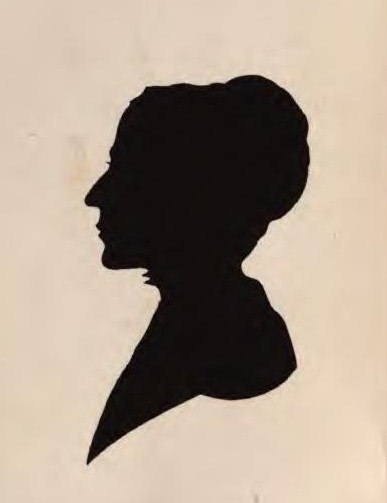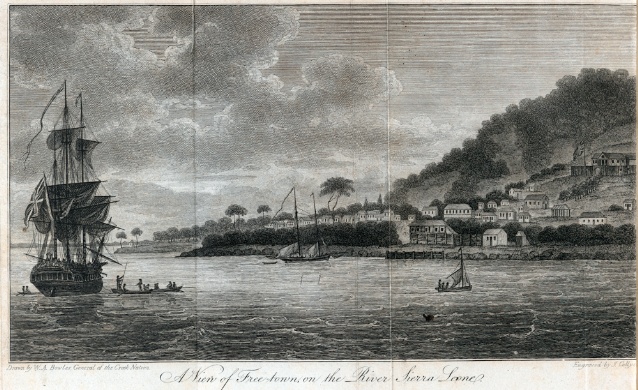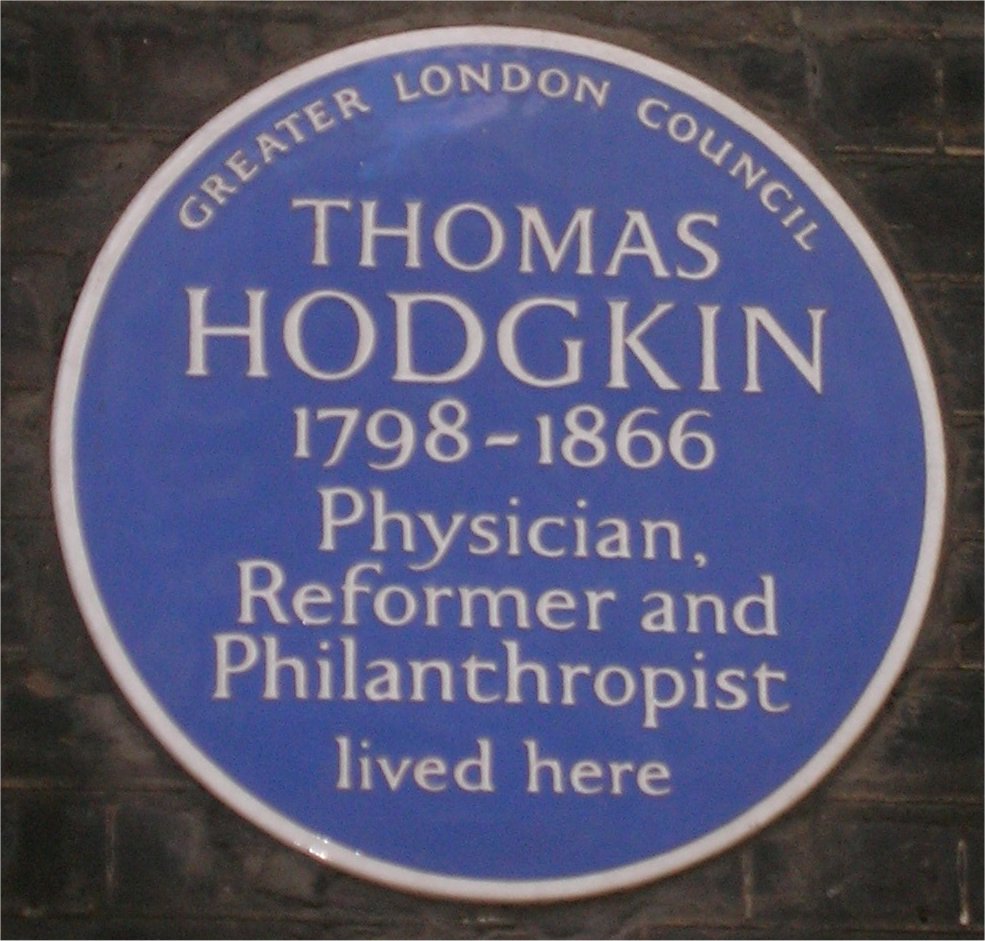|
Hannah Kilham
Hannah Kilham (1774–1832) née Spurr was an English Methodist and Quaker, known as a missionary and linguist active in West Africa. She was also a teacher and philanthropic activist in England and Ireland. Early life She was born at Sheffield on 12 August 1774, the seventh child of Peter and Hannah Spurr, in trade there. Brought up in the Church of England, she was permitted to attend John Wesley's early morning services. Her mother's death when she was twelve (1786) had placed her at the head of the household, which consisted of her father and five brothers. Two years later her father died, and she was sent to a boarding-school at Chesterfield. At the age of 20 she joined the Wesleyans. On 12 April 1798 Hannah Spurr became the second wife of Alexander Kilham, founder of the Methodist New Connexion, who died at Nottingham eight months later (20 December 1798). Hannah Kilham opened a day-school in Nottingham, spending her vacations at Epworth, her husband's early home. There ... [...More Info...] [...Related Items...] OR: [Wikipedia] [Google] [Baidu] |
Methodist
Methodism, also called the Methodist movement, is a group of historically related denominations of Protestant Christianity whose origins, doctrine and practice derive from the life and teachings of John Wesley. George Whitefield and John's brother Charles Wesley were also significant early leaders in the movement. They were named ''Methodists'' for "the methodical way in which they carried out their Christian faith". Methodism originated as a revival movement within the 18th-century Church of England and became a separate denomination after Wesley's death. The movement spread throughout the British Empire, the United States, and beyond because of vigorous missionary work, today claiming approximately 80 million adherents worldwide. Wesleyan theology, which is upheld by the Methodist churches, focuses on sanctification and the transforming effect of faith on the character of a Christian. Distinguishing doctrines include the new birth, assurance, imparted righteousness ... [...More Info...] [...Related Items...] OR: [Wikipedia] [Google] [Baidu] |
Luke Howard
Luke Howard, (28 November 1772 – 21 March 1864) was a British manufacturing chemist and an amateur meteorologist with broad interests in science. His lasting contribution to science is a nomenclature system for clouds, which he proposed in an 1802 presentation to the Askesian Society. Because of this, Howard is referred to as "The Godfather of Clouds", the "namer of the clouds", and the "father of meteorology". Personal life Luke Howard was born on 28 November 1772 in London to tin-plate manufacturer Robert Howard (1738–1812) and Elizabeth née Leatham (1742–1816). Howard attended a Quaker grammar school in Burford, Oxfordshire where the headteacher was renowned for his flogging of slow-to-learn pupils. In 1796 Howard married Mariabella Eliot. They had two sons, Robert Howard and John Eliot Howard, who were ultimately to take over their father's chemical manufacturing business. Their daughter Elizabeth married John Hodgkin, a barrister. Although a Quaker, he qui ... [...More Info...] [...Related Items...] OR: [Wikipedia] [Google] [Baidu] |
1832 Deaths
Year 183 ( CLXXXIII) was a common year starting on Tuesday (link will display the full calendar) of the Julian calendar. At the time, it was known as the Year of the Consulship of Aurelius and Victorinus (or, less frequently, year 936 ''Ab urbe condita''). The denomination 183 for this year has been used since the early medieval period, when the Anno Domini calendar era became the prevalent method in Europe for naming years. Events By place Roman Empire * An assassination attempt on Emperor Commodus by members of the Senate fails. Births * January 26 – Lady Zhen, wife of the Cao Wei state Emperor Cao Pi (d. 221) * Hu Zong, Chinese general, official and poet of the Eastern Wu state (d. 242) * Liu Zan (Zhengming), Chinese general of the Eastern Wu state (d. 255) * Lu Xun Zhou Shuren (25 September 1881 – 19 October 1936), better known by his pen name Lu Xun (or Lu Sun; ; Wade–Giles: Lu Hsün), was a Chinese writer, essayist, poet, and literary critic. He ... [...More Info...] [...Related Items...] OR: [Wikipedia] [Google] [Baidu] |
1774 Births
Events January–March * January 21 – Mustafa III, Sultan of the Ottoman Empire, dies and is succeeded by his brother Abdul Hamid I. * January 27 ** An angry crowd in Boston, Massachusetts seizes, tars, and feathers British customs collector and Loyalist John Malcolm, for striking a boy and a shoemaker, George Hewes, with his cane. ** British industrialist John Wilkinson patents a method for boring cannon from the solid, subsequently utilised for accurate boring of steam engine cylinders. * February 3 – The Privy Council of Great Britain, as advisors to King George III, votes for the King's abolition of free land grants of North American lands. Henceforward, land is to be sold at auction to the highest bidder. * February 6 – France's Parliament votes a sentence of civil degradation, depriving Pierre Beaumarchais of all rights and duties of citizenship. * February 7 – The volunteer fire company of Trenton, New Jersey, predecessor to the paid Trenton Fire ... [...More Info...] [...Related Items...] OR: [Wikipedia] [Google] [Baidu] |
Joseph Lancaster
Joseph Lancaster (25 November 1778 – 23 October 1838) was an English Quaker and public education innovator. He developed, and propagated on the grounds both of economy and efficacy, a monitorial system of primary education. In the first decades of the 19th century his ideas found application in new schools established in growing industrial centres. Early life He was born in Southwark, south London, on 25 November 1778, into a large family, the son of Richard Lancaster who had been a soldier and made cane sieves, and his wife Sarah Faulkes who was a shopkeeper. He was interested as a teenager in missionary work in Jamaica. He is said to have run away from home, and to have been returned through naval connections of the minister Thomas Urwick. Lancaster joined the Society of Friends, with the intention of becoming a teacher. Schoolmaster In 1798, Lancaster founded a free elementary school, with support from his father. He went on in 1801 to start in Borough Road, Southwark ... [...More Info...] [...Related Items...] OR: [Wikipedia] [Google] [Baidu] |
Monrovia
Monrovia () is the capital city of the West African country of Liberia. Founded in 1822, it is located on Cape Mesurado on the Atlantic coast and as of the 2008 census had 1,010,970 residents, home to 29% of Liberia’s total population. As the nation's primate city, Monrovia is the country's economic, financial and cultural center; its economy is primarily centered on its harbor and its role as the seat of Liberian government. Etymology Monrovia is named in honor of U.S. President James Monroe, a prominent supporter of the colonization of Liberia and the American Colonization Society. Along with Washington, D.C., it is one of two world capitals to be named after a U.S. President. History Before 1816, the area around Cape Mesurado and the mouth of the Mesurado River was called Ducor. It had long been established as a crossroads and place of trade, and was inhabited by fishing, trading and farming communities of various ethnicities, including the Dey, Kru, Bassa, Gola, and ... [...More Info...] [...Related Items...] OR: [Wikipedia] [Google] [Baidu] |
Liberia
Liberia (), officially the Republic of Liberia, is a country on the West African coast. It is bordered by Sierra Leone to Liberia–Sierra Leone border, its northwest, Guinea to its north, Ivory Coast to its east, and the Atlantic Ocean to its south and southwest. It has a population of around 5 million and covers an area of . English is the official language, but over 20 indigenous languages are spoken, reflecting the country's ethnic and cultural diversity. The country's capital and largest city is Monrovia. Liberia began in the early 19th century as a project of the American Colonization Society (ACS), which believed black people would face better chances for freedom and prosperity in Africa than in the United States. Between 1822 and the outbreak of the American Civil War in 1861, more than 15,000 freed and free-born black people who faced social and legal oppression in the U.S., along with 3,198 Afro-Caribbeans, relocated to Liberia. Gradually developing an Americo- ... [...More Info...] [...Related Items...] OR: [Wikipedia] [Google] [Baidu] |
Freetown
Freetown is the capital and largest city of Sierra Leone. It is a major port city on the Atlantic Ocean and is located in the Western Area of the country. Freetown is Sierra Leone's major urban, economic, financial, cultural, educational and political centre, as it is the seat of the Government of Sierra Leone. The population of Freetown was 1,055,964 at the 2015 census. The city's economy revolves largely around its harbour, which occupies a part of the estuary of the Sierra Leone River in one of the world's largest natural deep water harbours. Although the city has traditionally been the homeland of the Sierra Leone Creole people, the population of Freetown is ethnically, culturally, and religiously diverse. The city is home to a significant population of all of Sierra Leone's ethnic groups, with no single ethnic group forming more than 27% of the city's population. As in virtually all parts of Sierra Leone, the Krio language of the Sierra Leone Creole people is Freetown's ... [...More Info...] [...Related Items...] OR: [Wikipedia] [Google] [Baidu] |
Free Town
Free may refer to: Concept * Freedom, having the ability to do something, without having to obey anyone/anything * Freethought, a position that beliefs should be formed only on the basis of logic, reason, and empiricism * Emancipate, to procure political rights, as for a disenfranchised group * Free will, control exercised by rational agents over their actions and decisions * Free of charge, also known as gratis. See Gratis vs libre. Computing * Free (programming), a function that releases dynamically allocated memory for reuse * Free format, a file format which can be used without restrictions * Free software, software usable and distributable with few restrictions and no payment * Freeware, a broader class of software available at no cost Mathematics * Free object ** Free abelian group ** Free algebra ** Free group ** Free module ** Free semigroup * Free variable People * Free (surname) * Free (rapper) (born 1968), or Free Marie, American rapper and media pers ... [...More Info...] [...Related Items...] OR: [Wikipedia] [Google] [Baidu] |
Thomas Hodgkin
Thomas Hodgkin RMS (17 August 1798 – 5 April 1866) was a British physician, considered one of the most prominent pathologists of his time and a pioneer in preventive medicine. He is now best known for the first account of Hodgkin's disease, a form of lymphoma and blood disease, in 1832. Hodgkin's work marked the beginning of times when a pathologist was actively involved in the clinical process. He was a contemporary of Thomas Addison and Richard Bright at Guy's Hospital in London. Early life Thomas Hodgkin was born to a Quaker family in Pentonville, St. James Parish, Middlesex, the son of John Hodgkin. He received private education with his brother John Hodgkin, and in 1816 took a position as private secretary to William Allen. His aim was to learn the trade of apothecary, one of the routes into medicine, and Allen, despite prominence in that business, did not make it possible. They parted, and Hodgkin went to an apothecary cousin, John Glaisyer, in Brighton instead. ... [...More Info...] [...Related Items...] OR: [Wikipedia] [Google] [Baidu] |

.jpg)

.jpg)


